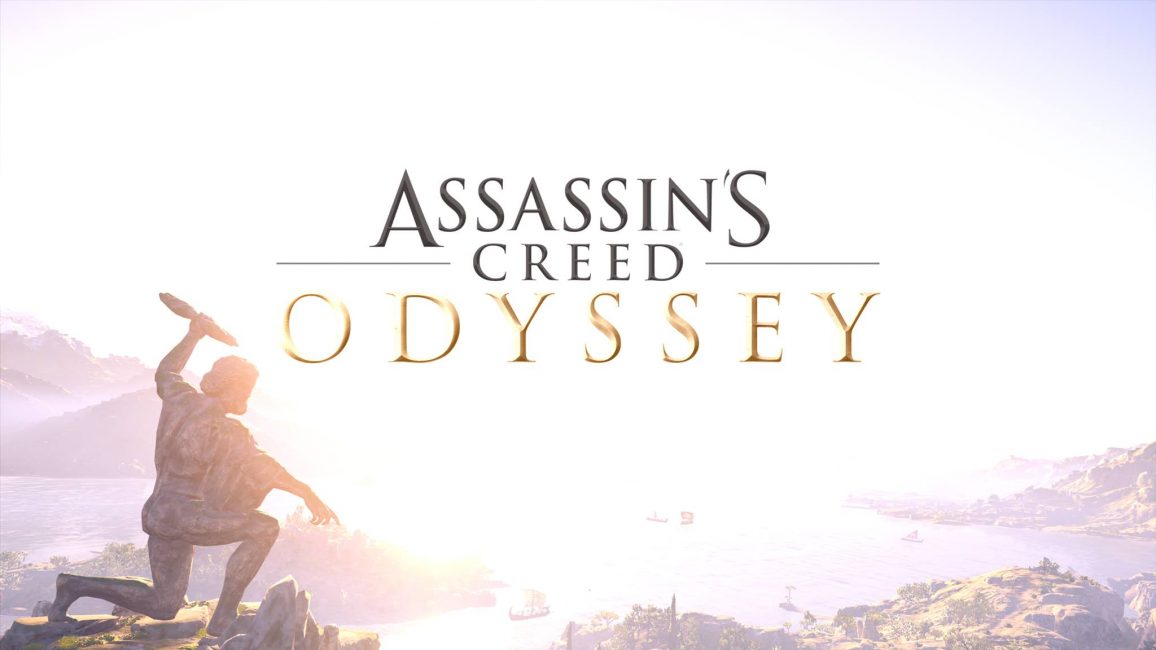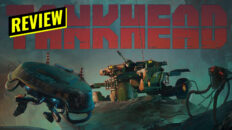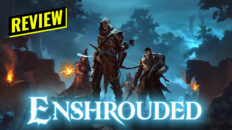Developer: Ubisoft Quebec
Publisher: Ubisoft
Reviewed on: PlayStation 4 Pro
Purchased.
Assassin’s Creed Odyssey takes place in 431 BCE, 400 years before the events of Assassin’s Creed Origins. It focuses on a fictional history of the Peloponnesian War. In the present time, Layla Hassan has recovered the Spear of Leonidas, and with it, extracts the DNA of two siblings. The player will then be given the choice between them, a male (Alexios) and a female (Kassandra).
Right off the bat, it’s important to know that whichever sibling is chosen, the story differences are minuscule. Whoever is chosen becomes the older sibling and the backstory plays out pretty much identically. It’s a shame, as some uniqueness, and maybe the inclusion of New Game +, would’ve been more than welcome, instead it’s absent this time around. Regardless of the little changes to the story, it’s always nice to see a female protagonist offered up. I personally tried both, and Kassandra played out much better, whereas Alexios was on the weaker side when it came to voice acting.

Regardless of which sibling you choose, the story opens on the small island of Kephallonia, which basically serves as the small tutorial area. You’ll learn some of the ins-and-outs of combat, stealth, exploration and some of the newly added RPG elements. This will last roughly 3 hours, afterwards, the title screen finally shows up, and then the long adventure begins.
The story is an absolute epic. I don’t want to get too much into the story details, as there are a nice amount of surprises waiting for you. Assassins and Templars may be excluded this time around, but that doesn’t mean there isn’t a grand evil organization lurking about. Here, we have the Cult of Kosmos. Odyssey takes a page out of Origins’ book and delivers a secret cult of masked enemies to track down. This list of enemies is displayed in a similar, family tree like menu screen. Each of the major heads of the cult have lesser cultists who have to be unmasked to finally reveal the big bad they’re working under, and revealing each of the major heads then reveals their final leader. It’s a nice mechanic and works surprisingly well. Going after each member never felt old or overstayed its welcome.

Also on the topic of persistent enemies, Odyssey takes inspiration from the Shadow of Mordor/War Nemesis system. Once again, like Origins’ Phylakes: committing crimes, killing soldiers, stealing, trespassing, injuring civilians, all builds up a meter of five little helmets in the bottom corner of the screen, and also builds up a bounty on your character’s head. Once it fills up to a helmet, an enemy Mercenary will appear to fight you, the more helmets you fill the more Mercenaries show up (up to 5), and they get more powerful as they go. My one complaint about it would be that they like to show up at the worst time, usually in the middle of completing a Fort, or in the middle of an already cluttered fight. Defeating these mercenaries is the fun part. There’s a ladder, each sitting in different tiers of strength, and defeating one that is higher than you places your character one level above them. Killing them also gives some of the best loot in the game and special rewards for advancing through the ranks. In the end, you can either tough it out and try killing your way through your bounties and mercenaries when they show up, or simply use the in game currency, Drachmae, to pay off your bounty and make the mercenaries leave you alone until the next time you wreak havoc.
When it comes to the setting, Ubisoft has managed to deliver something truly special here. Greece is gargantuan and varied. Sometimes, when stopping for a moment and just appreciating the scale of the world and how intimidatingly huge the map is, it’s almost unbelievable what they achieved. Even better, these excellent well crafted areas are separated by the sea. Sailing and naval combat is back in a bigger and much better way. Fans of Black Flag may rejoice as there is plenty of ocean to explore. The naval battles are also fantastic, even if they are a little over simplified.
For the most part, anyone who has played Origins will definitely know what to expect. Origins made some big changes to the long-running franchise, mostly for the better, and it’s clearly the new template Ubisoft will be employing. For the core gameplay elements, you can use a huge variety of bows and melee weapons, including daggers, hammers, staffs spears, swords and axes. There’s also an enormous amount of armor. The loadout possibilities are literally endless.

My only gripe about the loot in Assassin’s Creed Odyssey is that the in-game store is filled with ways for players to take shortcuts if they’re willing to fork over real cash. Want all the maps for loot? Pay about $10 and you can have them. Want a legendary weapon without having to explore? You can buy that, too. Want a temporary or even permanent XP and/or money booster? You can fork over cash for that too. Thankfully, I didn’t feel my progression was slowed to get me to buy, as I completed nearly everything anyway and was Level 50 before finishing the main story. Some people may feel tempted to give in and purchase something, as people love to see micro-transactions as the Devils’ work these days. I can assure you that it is 100% playable without dropping a dime.

Moving into the abilities now, there are three skill trees, with some fantastic ones to unlock. We have a tree for the Hunters, which help out with ranged combat and bows, giving access to abilities such as a player-controlled arrow, overhead arrow volleys, and the lovely Overpower Bow Attack which shoots an insanely overpowered AOE (area-of-effect) Arrow. Next we have the Warrior tree that focuses more on CQC, with abilities like the iconic Spartan Kick and the regular Overpower ability which will unlock a crazy frenzy attack, each weapon type having their own unique move. Finally, a tree for Assassins, with abilities like being able to summon a lieutenant to distract the enemy, a ranged assassination where the spear of Leonidas is thrown like Talion from Shadow of War, and the ability to completely disappear. Two stand-out abilities I have to give Ubisoft props for finally adding are the ability to use some of your Focus meter to heal yourself, and the ability to take less fall damage (when upgraded, NO fall damage). I have lost count how many times across the entire series that I’ve desynchronized from falling to my death.
Assassin’s Creed Odyssey is yet another home run entry in the long-running series. By expanding on the blueprint laid out by Origins, Ubisoft has crafted a beautiful experience that feels gargantuan in scale. I personally clocked in 60 hours to beat the story, and then finished my journey for the Platinum Trophy at the 64 hour mark. Seeing everything it has to offer could take 100 hours, easily, even if the majority of side content is filler and nonsensical fetch quests. The current foundation for Assassin’s Creed is exciting to say the least, even if its dialogue system and romantic pursuits fall flat more than they prevail, but it’s a first for Ubisoft, and I believe they can nail it on their next attempt.









